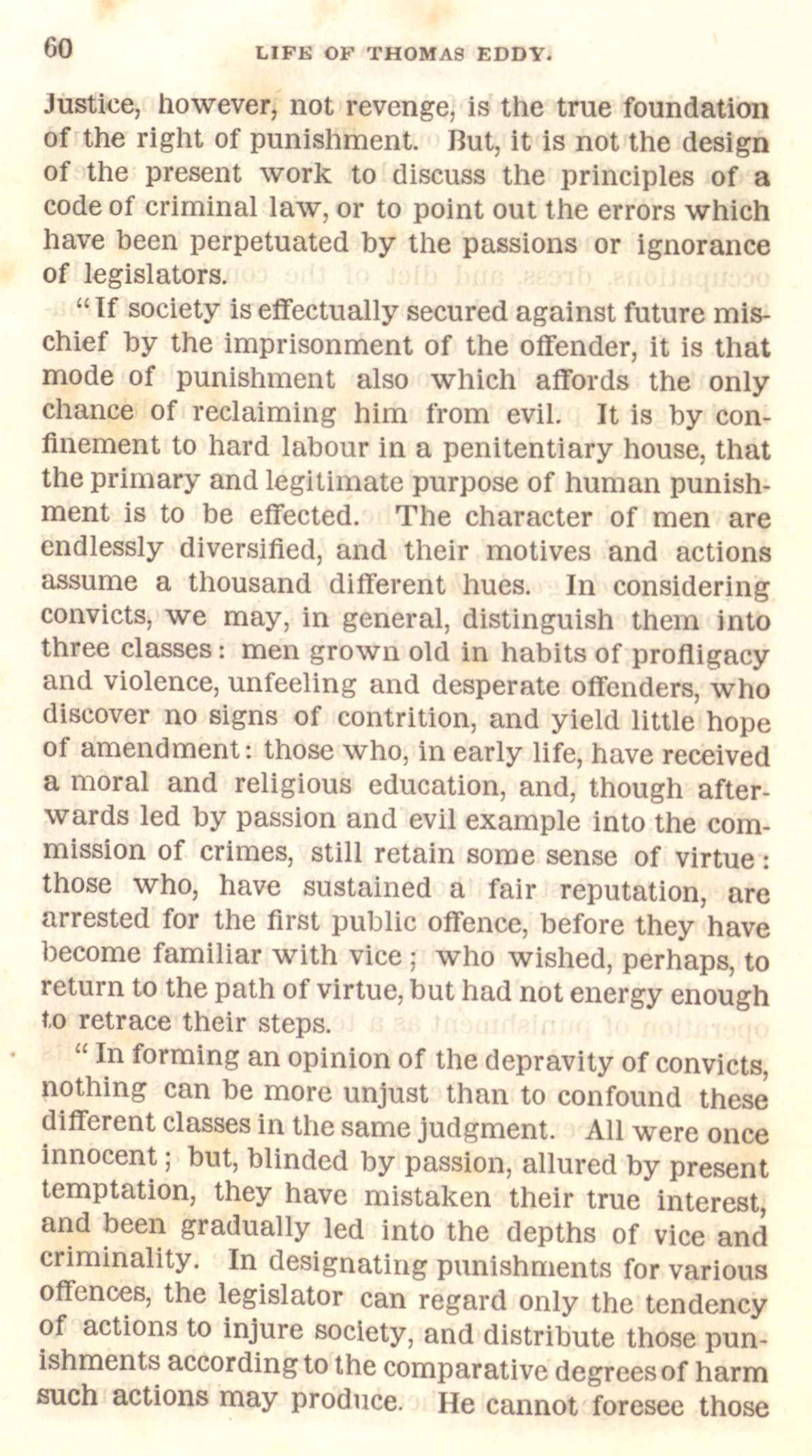Justice, however, not
revenge, is the true foundation
of the right of punishment. But, it
is not the design
of the present work to discuss the principles of a
code of criminal law, or to point out the errors which
have
been perpetuated by the passions or ignorance
of legislators.
If society is effectually secured against future mis-
chief by the
imprisonment of the offender, it is that
mode of punishment also
which affords the only
chance of reclaiming him from evil. It is by
con-
finement to hard labour in a penitentiary house, that
the
primary and legitimate purpose of human punish-
ment is to be
effected. The character of men are
endlessly diversified, and their
motives and actions
assume a thousand different hues. In
considering
convicts, we may, in general, distinguish them
into
three classes: men grown old in habits of profligacy
and
violence, unfeeling and desperate offenders, who
discover no signs
of contrition, and yield little hope
of amendment: those who, in
early life, have received
a moral and religious education, and,
though after-
wards led by passion and evil example into the
com-
mission of crimes, still retain some sense of virtue:
those who, have sustained a fair reputation, are
arrested for the
first public offence, before they have
become familiar with vice;
who wished, perhaps, to
return to the path of virtue, but had not
energy enough
to retrace their steps.
In forming an opinion of the depravity of convicts,
nothing can be
more unjust than to confound these
different classes in the same
judgment. All were once
innocent; but, blinded by passion, allured
by present
temptation, they have mistaken their true interest,
and been gradually led into the depths of vice and
criminality. In
designating punishments for various
offences, the legislator can
regard only the tendency
of actions to injure society, and
distribute those pun-
ishments according to the comparative degrees
of harm
such actions may produce. He cannot foresee those

